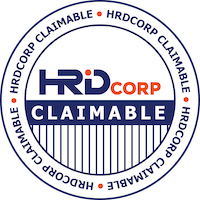APQP, Control Plan, and PPAP: Understanding and Implementing
Master the intricacies of Advanced Product Quality Planning (APQP), Control Plans, and Production Part Approval Process (PPAP) under expert guidance. Enroll in our specialized training program designed to equip you with essential skills for effective quality management. Gain practical insights into implementing robust processes that align with industry standards.
- Available in:
- Malaysia

Corporate Pricing
Pax:
Training Provider Pricing
Pax:
Features
Classification
Industry Specific Course
- Tailored to specific industry needs
- Focuses on specialized tools and techniques
- Ensures alignment with current and future standards
- Provides targeted, practical training
- Verified by industry experts
Subsidies

What you'll learn
- Understand the relationship between APQP, PPAP, and Control Plans.
- Explore integration of APQP with ISO 9001 and IATF 16949 standards.
- Gain proficiency in conducting pilot production runs and MSA.
- Develop skills in creating DFMEA, PFMEA, and control plans.
- Identify best practices for supplier quality management.
- Learn the five phases of APQP for effective product development.
- Utilize FMEA for risk assessment and mitigation.
Why should you attend?
This course provides a comprehensive exploration of Advanced Product Quality Planning (APQP), Control Plans, and the Production Part Approval Process (PPAP). It begins with an introduction to quality planning, emphasizing the significance of APQP in product development and its interconnection with PPAP and Control Plans. Participants will gain insights into the fundamentals of APQP, including its definition, objectives, and the five critical phases that guide successful implementation. The course delves into each phase of APQP, starting with planning and defining programs by understanding customer requirements and conducting preliminary risk assessments. It progresses through product design and development, focusing on techniques like Design Failure Mode and Effects Analysis (DFMEA) and Design for Manufacturability and Assembly (DFM/A). The process design phase covers creating process flow diagrams and conducting Process Failure Mode and Effects Analysis (PFMEA). Participants will learn about the purpose and types of control plans, developing frameworks to ensure quality consistency. A case study session allows learners to apply their knowledge in real-world scenarios, identifying potential pitfalls and best practices. The course also covers product and process validation through pilot production runs, Measurement Systems Analysis (MSA), and capability studies. An overview of PPAP highlights its objectives, submission requirements, and detailed review of elements such as design records and material performance tests. The course concludes with advanced topics like integrating APQP with other quality standards, managing supplier quality, risk management strategies using FMEA, documentation practices for compliance, future trends in quality planning influenced by Industry 4.0, big data analytics, and emerging technologies.
Course Syllabus
Day 1 - Quality Planning Fundamentals
Short Break
15 minsShort Break
15 minsRecap and Q&A
15 minsLunch
1 hourShort Break
15 minsShort Break
15 minsShort Break
15 minsRecap and Q&A
15 minsEnd of Day 1
Day 2 - APQP Phase Development
Short Break
15 minsShort Break
15 minsRecap and Q&A
15 minsLunch
1 hourShort Break
15 minsShort Break
15 minsShort Break
15 minsRecap and Q&A
15 minsEnd of Day 2
Day 3 - Control Plans Introduction
Short Break
15 minsShort Break
15 minsRecap and Q&A
15 minsLunch
1 hourShort Break
15 minsShort Break
15 minsShort Break
15 minsRecap and Q&A
15 minsEnd of Day 3
Minimum Qualification
Target Audience
Methodologies
FAQs
- Public pricing: applies for individuals signing up from different companies.
- Corporate pricing: applies if a company wants to have an intake for its employees only.
- Training provider pricing: applies only for other training providers looking to hire our trainers and use our content. Our content has a licensing fee.
Why should you attend?
This course provides a comprehensive exploration of Advanced Product Quality Planning (APQP), Control Plans, and the Production Part Approval Process (PPAP). It begins with an introduction to quality planning, emphasizing the significance of APQP in product development and its interconnection with PPAP and Control Plans. Participants will gain insights into the fundamentals of APQP, including its definition, objectives, and the five critical phases that guide successful implementation. The course delves into each phase of APQP, starting with planning and defining programs by understanding customer requirements and conducting preliminary risk assessments. It progresses through product design and development, focusing on techniques like Design Failure Mode and Effects Analysis (DFMEA) and Design for Manufacturability and Assembly (DFM/A). The process design phase covers creating process flow diagrams and conducting Process Failure Mode and Effects Analysis (PFMEA). Participants will learn about the purpose and types of control plans, developing frameworks to ensure quality consistency. A case study session allows learners to apply their knowledge in real-world scenarios, identifying potential pitfalls and best practices. The course also covers product and process validation through pilot production runs, Measurement Systems Analysis (MSA), and capability studies. An overview of PPAP highlights its objectives, submission requirements, and detailed review of elements such as design records and material performance tests. The course concludes with advanced topics like integrating APQP with other quality standards, managing supplier quality, risk management strategies using FMEA, documentation practices for compliance, future trends in quality planning influenced by Industry 4.0, big data analytics, and emerging technologies.
What you'll learn
- Understand the relationship between APQP, PPAP, and Control Plans.
- Explore integration of APQP with ISO 9001 and IATF 16949 standards.
- Gain proficiency in conducting pilot production runs and MSA.
- Develop skills in creating DFMEA, PFMEA, and control plans.
- Identify best practices for supplier quality management.
- Learn the five phases of APQP for effective product development.
- Utilize FMEA for risk assessment and mitigation.
Course Syllabus
Day 1 - Quality Planning Fundamentals
Short Break
15 minsShort Break
15 minsRecap and Q&A
15 minsLunch
1 hourShort Break
15 minsShort Break
15 minsShort Break
15 minsRecap and Q&A
15 minsEnd of Day 1
Day 2 - APQP Phase Development
Short Break
15 minsShort Break
15 minsRecap and Q&A
15 minsLunch
1 hourShort Break
15 minsShort Break
15 minsShort Break
15 minsRecap and Q&A
15 minsEnd of Day 2
Day 3 - Control Plans Introduction
Short Break
15 minsShort Break
15 minsRecap and Q&A
15 minsLunch
1 hourShort Break
15 minsShort Break
15 minsShort Break
15 minsRecap and Q&A
15 minsEnd of Day 3
Corporate Pricing
Pax:
Training Provider Pricing
Pax:
Features
Classification
Industry Specific Course
- Tailored to specific industry needs
- Focuses on specialized tools and techniques
- Ensures alignment with current and future standards
- Provides targeted, practical training
- Verified by industry experts
Subsidies

Minimum Qualification
Target Audience
Methodologies
FAQs
- Public pricing: applies for individuals signing up from different companies.
- Corporate pricing: applies if a company wants to have an intake for its employees only.
- Training provider pricing: applies only for other training providers looking to hire our trainers and use our content. Our content has a licensing fee.
Our Offers

Become a Trainer
Teach what you love. Abundent Academy gives you the tools you need to run your own trainings! We provide you with the platform, the students, the materials, and the support you need to succeed!
- Higher trainer payouts
- Ready-made course materials
- Student management system
- AI digital marketing assistant

Academy for Business
Get unlimited access to all of Abundent Academy's carefully curated courses for your team, all organized according to job category and role! Perfect for companies looking to upskill their workforce and stay ahead in the tech industry.
- Carefully curated courses
- Role-based learning paths
- Team progress tracking
- Gap Identification and Analysis
Top companies choose Academy for Business







